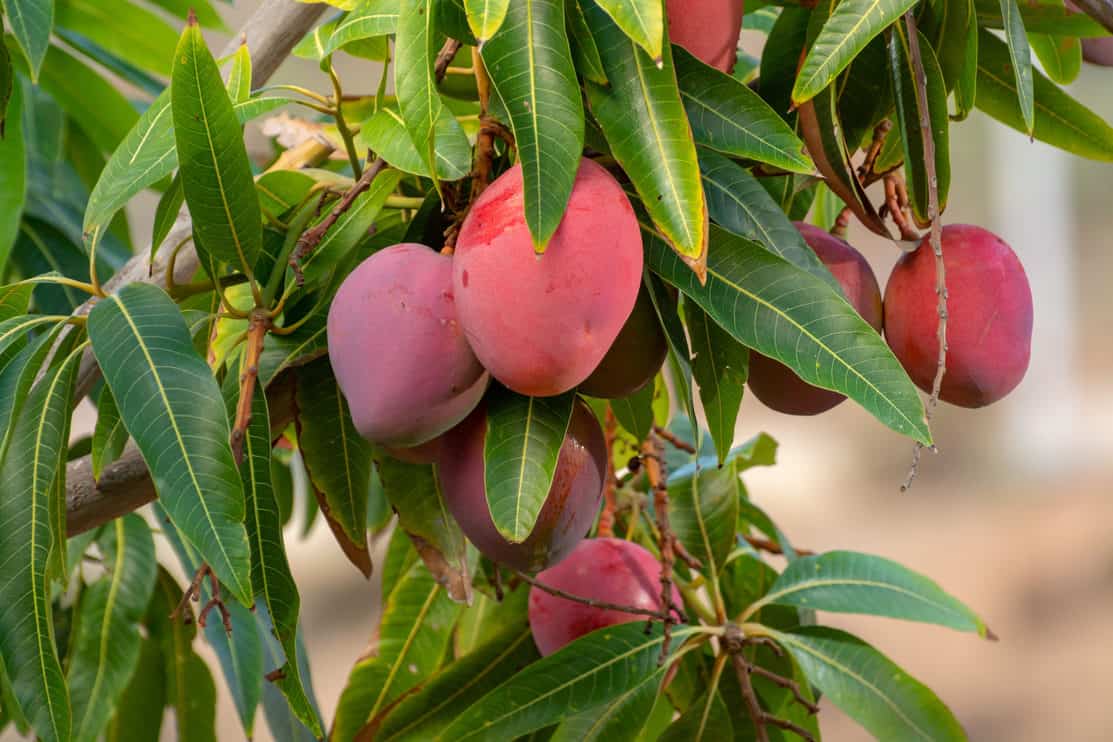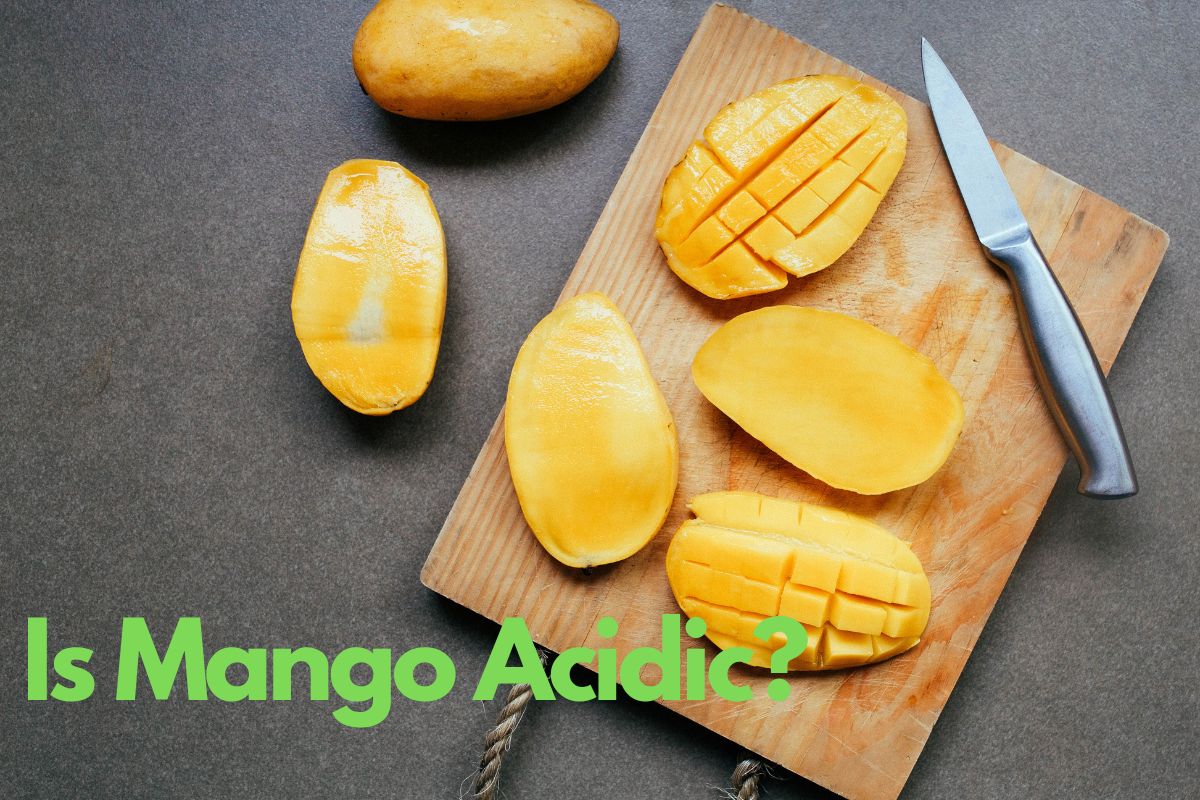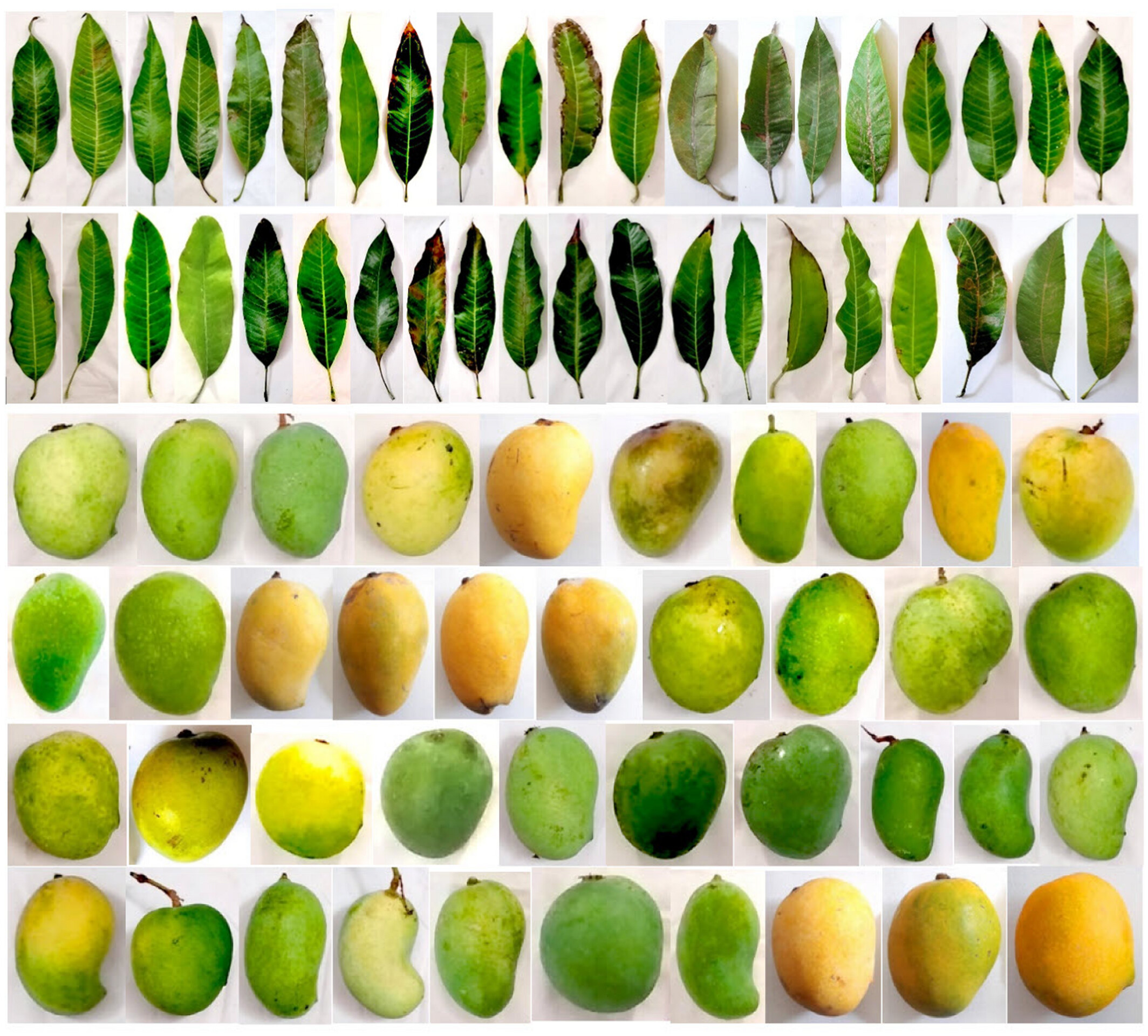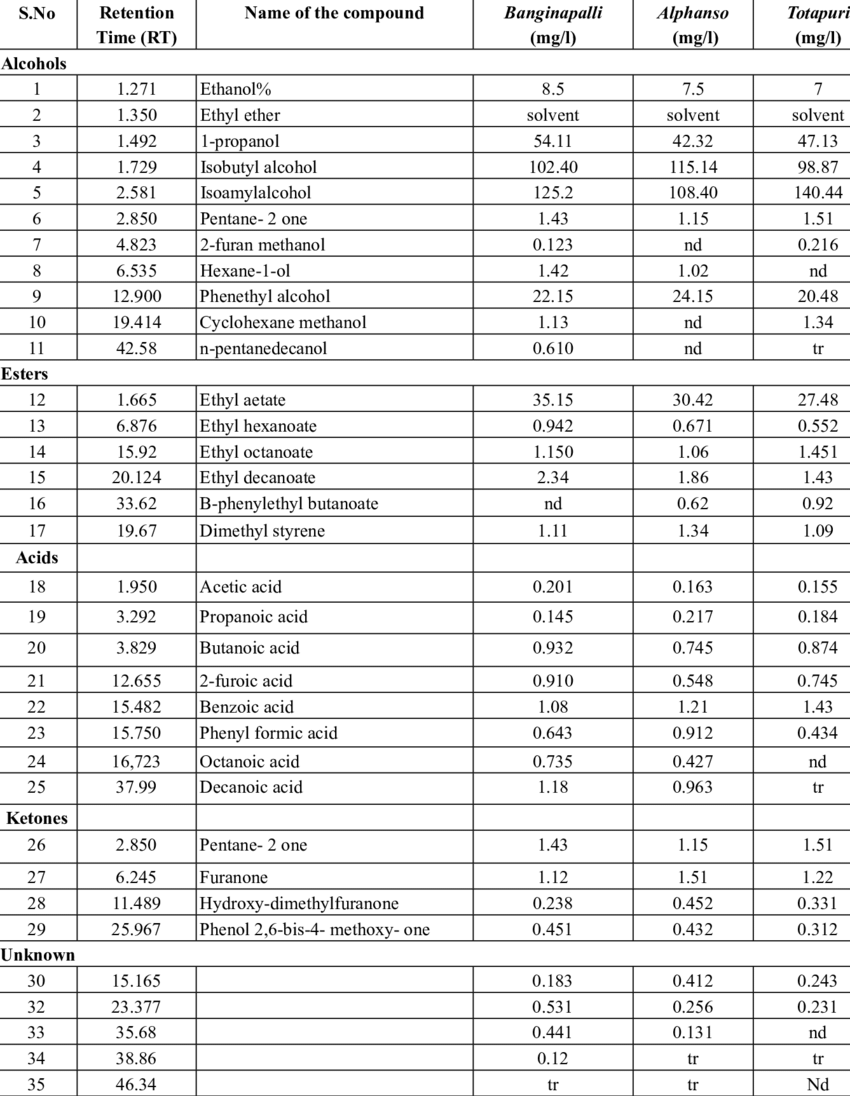
The sun-kissed mango, with its vibrant flesh and intoxicating aroma, reigns supreme as a tropical fruit beloved by millions. DiscoverAre Mangoes Acidic Or Alkaline?This sweet-tart treasure doesn't just tantalize taste buds, it's a nutritional powerhouse, boasting vitamins A and C, antioxidants, and dietary fiber.
But beneath its luscious layers lies a fascinating secret, are mangoes acidic or alkaline? The answer, like the fruit itself, holds surprising nuances. Dive with us into a delicious exploration of the mango's pH secrets, where we'll unveil the acidity levels of different varieties and uncover the science behind their tangy magic. Get ready to bite into the juicy truth about this beloved fruit, one spoonful at a time!
What Determines Acidity And Alkalinity In Foods?
The tangy tartness of a lemon or the creamy richness of milk, these contrasting tastes hint at a hidden dimension in our food: its pH level. This seemingly cryptic number actually dictates whether something is acidic, alkaline, or neutral. But what determines this value, and how does it apply to delicious fruits like the mango?
Measure Of Acidity And Alkalinity
Imagine a scale from 0 to 14, where 0 is incredibly acidic, 14 is highly alkaline, and 7 represents neutrality. This is the pH scale. It measures the concentration of hydrogen ions (H+), positively charged molecules lurking within any aqueous solution, including food.
The more H+ ions, the lower the pH and the more acidic the substance. Conversely, higher pH values with fewer H+ ions indicate alkalinity. For example, lemon juice boasts a pH around 2, making it intensely acidic, while milk sits comfortably at around 6.7, slightly acidic.
The Hidden Factors Influencing Food's PH
So, what dictates where a food lands on this pH spectrum? Several factors play a role:
- Organic Acids -Many fruits, like mangoes, contain organic acids like citric acid and malic acid, contributing to their tartness and lowering their pH.
- Minerals -Minerals like potassium and magnesium, found in abundance in bananas and leafy greens, can counteract acidity and raise the pH towards alkalinity.
- Processing and Cooking -Methods like canning, pickling, and fermentation can increase acidity by adding acids or promoting their formation. Cooking can sometimes raise pH by breaking down complex molecules.
- Ripeness -As fruits ripen, their sugar content increases, often accompanied by a slight decrease in acidity and a rise in pH.
Mangoes - Unveiling The Acidity Puzzle
Now, let's dissect our favorite tropical treat. Ripe mangoes typically have a pH ranging from 4 to 5.5, placing them squarely in the acidic territory. However, this isn't a uniform verdict; the variety plays a crucial role.
For instance, a sweet Alphonso mango might have a pH closer to 5, while a tart Kent might dip down to 4. Additionally, factors like ripeness and processing can further influence individual mango's acidity levels.
Acidity In Mangoes
The vibrant and flavorful mango, boasting a sunshine-hued flesh and a tempting aroma, is more than just a tropical treat. Beneath its sweetness lies a fascinating secret: its acidity level.
But the answer to "how acidic are mangoes?" isn't a simple one. Let's delve into the fascinating world of mango acidity, exploring its variations, the impact of ripeness, and how it all plays out in taste and texture.
Degrees Of Tang - A Spectrum Of Acidity
While ripe mangoes generally fall within the 4-5.5 pH range, placing them in the acidic camp, their acidity isn't monolithic. Several factors contribute to this delightful diversity:
1. Varietal Variations -Nature plays a significant role. Some varieties, like the sweet Alphonso, naturally lean towards a less acidic side with a pH closer to 5, while tart mangoes like Kent can dip down to 4.
2. Ripeness Matters -As mangoes ripen, their sugar content skyrockets, often accompanied by a slight decrease in acidity. This means a perfectly ripe mango, compared to a less mature one, may have a subtly sweeter and less tart flavour.
3. Processing and Storage -Certain methods like pickling or canning can introduce additional acids, potentially increasing overall acidity. Even storage conditions can play a role; mangoes stored at warmer temperatures may experience faster sugar conversion, leading to a slight decrease in acidity.
Taste Buds And Texture Tango - How Acidity Plays Its Part
Acidity isn't just a number; it plays a crucial role in the sensory symphony of a mango. Here's how it impacts both taste and texture:
- The Tangy Twinkle - Mango's characteristic tartness primarily hails from organic acids like citric and malic acid. These acids stimulate taste receptors on our tongues, triggering that delightful tang. Interestingly, the balance between these acids and sugars contributes to the fruit's unique flavor profile.
- Texture Transformations -Acidity also influences texture. As mangoes ripen and their acidity decreases, their flesh softens and becomes juicier. This is because enzymes break down pectin, a compound that contributes to firmness. So, a riper, less acidic mango will undoubtedly be softer and juicier than its more acidic counterpart.
Understanding Acidity's Importance
While enjoying the delicious dance of sweetness and tartness in a mango takes center stage, understanding its acidity level can have its perks:
- Digestive Delight -Some evidence suggests that consuming a balanced diet rich in acidic fruits like mangoes may offer certain digestive benefits.
- Healthier Choices -Knowing the acidity levels of various fruits can help you make informed choices based on your individual needs and preferences.
Alkalinity And Health Benefits Of Mangoes
While mangoes are generally classified as acidic due to their pH falling within the 4-5.5 range, some argue they offer indirect alkalizing propertiesthat contribute to potential health benefits. It's important to distinguish between the fruit's direct pH and its potential impact on the body's overall acid-base balance.
Alkaline Mineral Content
Mangoes are a good source of several alkaline minerals, such as potassium, calcium, and magnesium. These minerals help neutralize acids in the body and contribute to maintaining a healthy pH balance. While consuming mango directly doesn't shift the body's pH significantly, these minerals may potentially help buffer the acid load from other dietary sources.
Potential Health Benefits
Several studies suggest the alkaline minerals in mangoes could offer health benefits, although more research is needed:
- Blood Pressure Regulation - Potassium found in mangoes can help regulate blood pressure by balancing the effects of sodium. Studies suggest diets rich in potassium may decrease the risk of high blood pressure and stroke.
- Bone Health -Calcium and magnesium play crucial roles in bone health. Adequate intake of these minerals from mangoes, alongside other dietary sources, could contribute to bone density and help prevent osteoporosis.
- Improved Digestion -Mangoes contain enzymes that aid digestion and promote gut health. These enzymes help break down proteins and carbohydrates, potentially easing digestion and reducing discomfort.
- Antioxidant Benefits -Mangoes are packed with antioxidants, such as vitamin C and beta-carotene, which protect cells from damage by free radicals. This antioxidant activity may contribute to reducing the risk of chronic diseases like cancer and heart disease.
Evidence And Studies
- A study published in the Journal of the American College of Nutrition found that a diet rich in potassium lowered blood pressure and reduced the risk of stroke in individuals with hypertension.
- A review article in Nutrients highlighted the importance of calcium and magnesium for bone health and suggested dietary sources like mangoes could contribute to adequate intake.
- Research published in the World Journal of Gastroenterology discussed the digestive benefits of enzymes found in mangoes and their potential to improve gut health and digestion.
- Studies on the antioxidant properties of mango's vitamin C and beta-carotene suggest their potential role in reducing the risk of chronic diseases.
Comparing Mango Varieties - Acidity Levels
The luscious mango, a tropical treasure trove of sweetness and sunshine, holds a hidden depth when it comes to acidity. While all mangoes fall on the acidic side of the pH spectrum, their individual levels vary, creating a delightful diversity of tangy experiences.
Acidity Champions
- Kent -This vibrant green giant hails from Florida and reigns supreme in the acidity kingdom, boasting a pH as low as 4. Its sharp, tartness is balanced by hints of honey and floral notes, making it a favorite for chutneys and salsas.
- Tommy Atkins -Another Florida native, Tommy Atkins is known for its intense aroma and vibrant orange flesh. Its pH hovers around 4.5, delivering a zesty punch that cuts through its natural sweetness. Perfect for smoothies and desserts where it brings a refreshing balance.
Balancing Act
- Alphonso -The undisputed king of mangoes, Alphonso from India strikes a beautiful balance between sweetness and acidity. With a pH ranging from 4.8 to 5, it offers a subtle tang that enhances its floral honeyed flavor. Enjoy it on its own to savor its delicate taste. www.sunimpex.bizAlphonso Mango
- Ataulfo -This petite Mexican beauty boasts a sunshine-yellow flesh and a pH around 5. Its acidity is barely noticeable, creating a creamy, buttery sweetness that melts in your mouth. Ataulfo is a true dessert delight.
Sweet Surrender
- Keitt -Hailing from Florida, Keitt is a large, oblong mango with a pH hovering around 5.2. Its acidity is minimal, allowing its natural sweetness to take center stage. Keitt is perfect for snacking or enjoying in fruit salads where its gentle sweetness shines. www.melissas.comKeitt Mango
- Honey -True to its name, Honey mango from India exudes a delicate sweetness with barely a whisper of acidity (pH around 5.5). Its soft, juicy flesh makes it a melt-in-your-mouth treat, ideal for savoring on its own or using in desserts where its gentle sweetness elevates the flavor. melissas.comHoney Mango.
Impact Of Mango Consumption On Body's PH Balance
While mangoes are classified as acidic due to their pH range (4-5.5), their impact on the body's overall pH balance is a nuanced and intricate discussion. Here's a breakdown of the factors at play:
Direct Impact
- Minimal Effect on Blood pH -Eating mangoes directly doesn't significantly alter blood pH, which stays tightly regulated within a narrow range (7.35-7.45) by the kidneys and lungs. This is regardless of consuming acidic or alkaline foods.
- Potential Acid Load -Although mangoes won't directly shift blood pH, they do generate an "acid load" upon digestion due to certain organic acids (citric, malic). This load needs to be neutralized by the body.
Alkaline Mineral Buffer
Minerals for Balance, Mangoes are a good source of alkaline minerals like potassium, calcium, and magnesium. These minerals can potentially help buffer the acid load from mangoes and other dietary sources.
Indirect Effects
- Kidney Function -Studies suggest diets rich in alkaline fruits and vegetables, including mangoes, may decrease the potential strain on the kidneys to process acid by providing readily available alkaline minerals.
- Overall Diet -The impact of mangoes on overall pH balance ultimately depends on your entire diet. If you consume mainly acidic foods, mangoes might add to the acid load. Conversely, a balanced diet with alkaline and acidic foods, including mangoes, can help maintain a healthy pH equilibrium.
Studies And Opinions
1. A study published in the Journal of the American College of Nutrition found that a potassium-rich diet reduced the risk of stroke in individuals with hypertension, highlighting the potential benefits of alkaline minerals in mangoes.
2. Dr. Susan Brown, a registered dietitian, notes that while mangoes contribute to the acid load, their alkaline mineral content and overall balanced diet context are crucial in assessing their impact on pH balance.
Preparing And Consuming Mangoes For Optimal PH Balance
While mangoes' tangy charm comes from their acidity, enjoying them as part of a balanced pH diet is absolutely achievable! Here's a guide to selecting, preparing, and consuming mangoes with your pH in mind:
Selection And Storage
- Variety Matters -Opt for varieties with naturally lower acidity like Ataulfo (pH 5), Honey (pH 5.5), or Keitt (pH 5.2). Sweet Alphonso mangoes (pH 4.8-5) are also a good choice.
- Ripeness Check -Choose ripe mangoes with a slight give and fragrant aroma. Ripe mangoes have a slightly lower pH than unripe ones, potentially offering a sweeter, less acidic experience.
- Storage Smarts -Store unripe mangoes at room temperature, but once ripe, refrigerate them to slow down the sugar conversion and minimize potential acid increase.
Preparation And Consumption Tips
- Partner with Alkalizers -Pair your mangoes with alkaline foods like leafy greens, avocado, or sweet potatoes in salads, smoothies, or wraps. This combo helps balance the potential acid load.
- Get Creative with Herbs -Herbs like mint, basil, or cilantro add a fresh twist to mango dishes while offering their own alkaline properties.
- Go for Gentle Processing -Steaming or lightly grilling mangoes preserves their nutrients and minimizes potential acid increase compared to methods like frying.
- Sweeten Up Wisely -If extra sweetness is desired, use natural sweeteners like honey or dates instead of refined sugars, which add to the acid load.
PH-Conscious Mango Recipes
- Tropical Green Smoothie -Blend ripe Ataulfo mango, spinach, almond milk, avocado, and a squeeze of lime for a refreshing and pH-balancing treat.
- Mango and Quinoa Salad - Combine cooked quinoa, diced mango, cucumber, pomegranate seeds, and a cilantro-lime dressing for a light and nutrient-rich lunch.
- Grilled Mango with Coconut Cream -Lightly grill slices of Keitt mango and top with a dollop of homemade coconut cream for a naturally sweet and balanced dessert.
- Baked Mango with Honey - Bake chunks of Honey mango with a drizzle of honey and a sprinkle of cinnamon for a warm and comforting dessert with minimal added sugar.
Mangoes In A Balanced Diet - A Nutritional Perspective
While the fascinating world of mango acidity deserves exploration, their role in a balanced diet extends far beyond just pH concerns. These tropical gems are nutritional powerhouses, packing a punch of vitamins, minerals, and antioxidants, making them valuable players in a healthy eating plan.
A Vitamin And Mineral Treasure Trove
- Vitamin C Champion -One serving of mango delivers nearly 50% of your daily Vitamin C, crucial for a robust immune system, healthy skin, and collagen production.
- Fiber Fantasy - Rich in dietary fiber, mangoes promote digestive health, regulate blood sugar levels, and support satiety, keeping you feeling fuller for longer.
- Potassium Powerhouse - A good source of potassium, mangoes contribute to healthy blood pressure regulation and nerve function.
- Vitamin A Abundance - Beta-carotene, converted to Vitamin A in the body, supports vision health, cell growth, and immune function.
- B-Vitamin Bonanza - Mangoes offer a variety of B vitamins like folate and B6, essential for energy metabolism, red blood cell production, and cognitive function.
Mango Magic In Practice
- Sweet Start to the Day - Blend mangoes with spinach, banana, and almond milk for a vitamin-packed and refreshing smoothie.
- Tropical Lunch Salad -Toss diced mango with grilled chicken, avocado, quinoa, and a lime vinaigrette for a light and nutrient-rich lunch.
- Snack Savor - Slice ripe mangoes and pair them with Greek yogurt or almonds for a satisfying and healthy snack.
- Dessert Delight -Roast mango slices with cinnamon and honey for a warm and naturally sweet dessert option.
FAQ's About Are Mangoes Acidic Or Alkaline
What Is The PH Of Mango?
between 3.40-4.80Ripe mangoes have an approximate pH level between 5.80-6.00 and green mangoes have an approximate pH level between 3.40-4.80. Therefore, fully ripe mangoes are less acidic than unripe mangoes.
Is Mango Good For PH Balance?
The pH balance in your body can range from 1-14. The ideal balance is 7, so if you're body is to acidic, eating a mango can help alkalize it.
Which Acid Is Found In Mangoes?
The acid found in mangos is mainly citric acid. It also contains malic acid, tartaric, ascorbic and oxalic acid.
Conclusion
In the quest to determine the acidity or alkalinity of mangoes, it becomes evident that their pH value varies across different varieties. While some mango cultivars lean toward acidity, showcasing pH values typically ranging from 3.4 to 3.7, others exhibit a less acidic profile, nearing the neutral or slightly alkaline side.
Despite containing organic acids like citric acid, the overall effect of consuming mangoes tends to be alkalizing within the body due to their rich content of minerals and nutrients, countering any initial acidity.



